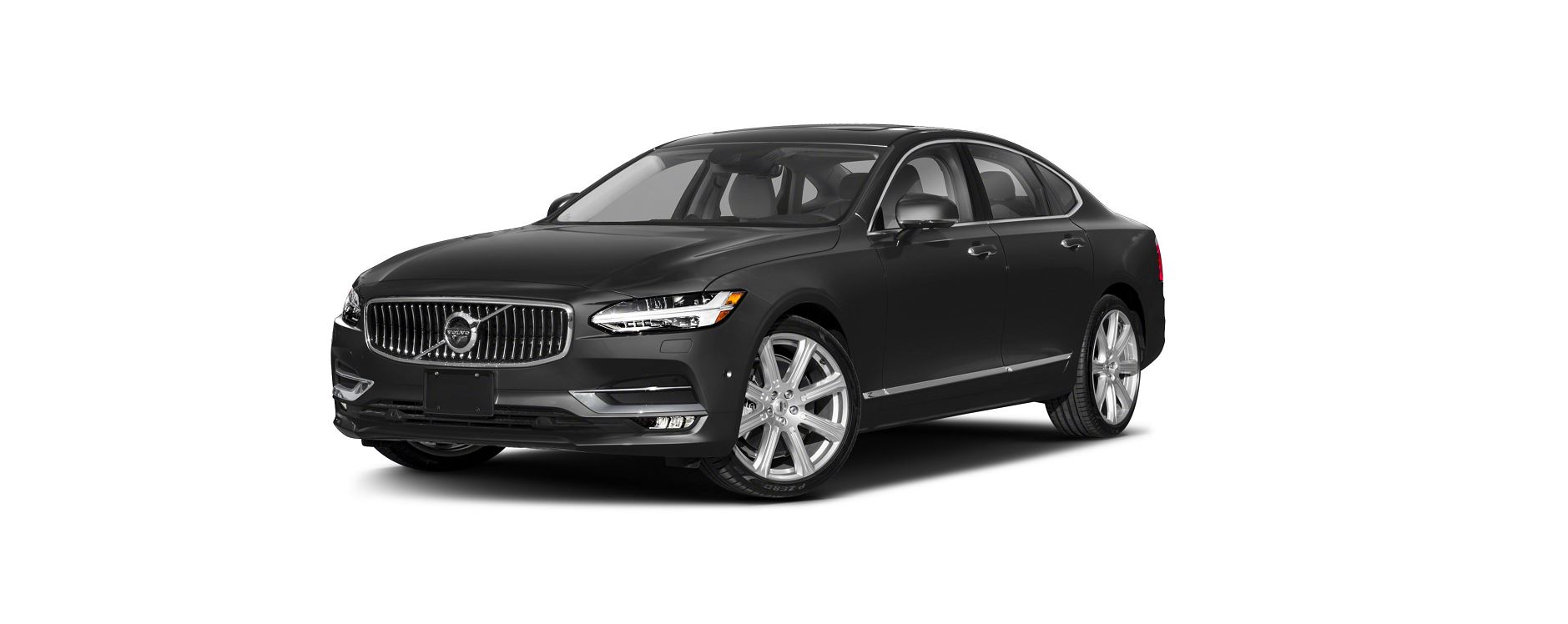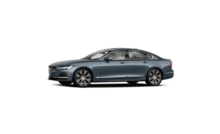- Keep loose objects such as phones, cameras, remote controls for accessories, etc. in the glove compartment or other compartments. Otherwise they may injure people in the car in the event of sudden braking or a collision.
Keep in mind that high gloss surfaces, for example, are easily scratched by metal objects. Do not place keys, phones and other items on sensitive surfaces.
Electrical sockets
- There is one 12V electrical socket in the tunnel console and one 12V electrical socket in the luggage compartment/cargo area.
- If a problem occurs with an electrical socket, contact a workshop – an authorised Volvo workshop is recommended.
The 12 V sockets can be used for various accessories designed for this, such as music players, cooler boxes and mobile phones.
Using electrical sockets
- 12 V sockets can be used for various accessories designed for this, such as music players, cooler boxes and mobile phones.
- For the sockets to supply current, the car’s electrical system must be set in the lowest ignition position I. The sockets are then active as long as the starter battery level does not become too low.
- If the engine is switched off and the car is locked, the sockets are deactivated. If the engine is switched off and the car is not locked, or is locked with double lock temporarily deactivated, then the sockets continue to be active for a further seven minutes.
- Remember that use of the electrical socket with the engine switched off entails a risk of discharging the starter battery, which can limit functionality.
- Accessories that are connected to the electrical sockets may be activated even when the car’s electrical system is disconnected or if preconditioning is used. For this reason, disconnect the connectors when they are not in use in order to avoid the starter battery being discharged.
- Do not use accessories with large or heavy connectors – they can damage the socket or come loose when driving.
- Do not use accessories that can cause interference to the car’s radio receiver or electrical system for example.
- Position the accessory so that it is not at risk of injuring the driver or passengers in the event of heavy braking or collision.
- Keep an eye on connected accessories as they can generate heat that can burn passengers or the interior.
- Remove the blanking plug (tunnel console) or fold down the cover (cargo area) in front of the socket and plug in the accessory’s connector.
- Unplug the accessory’s connector and refit the blanking plug (tunnel console) or fold up the cover (cargo area) when the socket is not in use or if the socket is left unattended.
Maximum socket output is 120 W (10 A) per socket.
Using the glovebox
Sun visors
- The figure is schematic – the design may vary.
- The mirror lighting is switched on automatically when the guard is lifted up.
- The mirror frame incorporates a holder for e.g. cards or tickets.
Tunnel console
- Storage compartment with cup holder.
- Storage compartment with 12 V socket and USB ports under the armrest.
- Climate controls for the rear seat climate functions or storage compartment. There are also USB ports underneath.
Keep loose objects such as phones, cameras, remote controls for accessories, etc. in the glove compartment or other compartments. Otherwise they may injure people in the car in the event of sudden braking or a collision.
Keep in mind that high gloss surfaces, for example, are easily scratched by metal objects. Do not place keys, phones and other items on sensitive surfaces.
- One of the detectors for the alarm is located under the tunnel console’s cup holder. Avoid leaving coins, keys and other metal objects in the cup holder, since this may trigger the alarm.
- The USB ports can be used for charging a phone or tablet, for example. Only the front USB port can be used to play media in the car’s audio system.
USB ports
- USB ports (type C) in the tunnel console, rear seat.
- The USB ports can be used to charge a phone or tablet, for example.
Use USB ports to charge devices
- The USB ports can be used to charge a phone or tablet, for example.
- The USB ports can be used when the car is in Comfort or Drive mode.
- The ports are switched off automatically when the driver leaves the car. If the car remains unlocked or is locked with a reduced alarm level, the ports remain active for a further approx. 10 minutes.
- Accessories that are connected to the ports may be activated even when the car’s electrical system is disconnected or if preconditioning is used. For this reason, unplug accessories when they are not in use.
- Some devices may become hot during charging. This is normal.
- Position the accessory so that it is not at risk of injuring the driver or passengers in the event of heavy braking or collision.
- Fold down the cover in front of the port and plug in the accessory’s connector.
- Unplug the accessory’s connector and fold up the cover when the port is not in use or is left unattended.
- Type C socket
- Version 3.1
- Voltage supply 5 V
- Current supply max. 3.0 A
Fuses under glovebox
- The fuse box is located behind the floor mat/side panel.
- The fuse box in the engine compartment provides space for several spare fuses.
| Function | Ampere | Type | |
|---|---|---|---|
| 1 | Control module, 48 V battery | 10 | Micro |
| 2 | – | – | MCase |
| 3 | – | – | Micro |
| 4 | Movement detector | 5 | Micro |
| 5 | – | – | Micro |
| 6 | Driver display | 5 | Micro |
| 7 | Keypad, centre console | 5 | Micro |
| 8 | Sun sensor Toll collection transponder | 5 | Micro |
| 9 | – | – | Micro |
| 10 | Infotainment system | 15 | Micro |
| 11 | Steering wheel module | 5 | Micro |
| 12 | Control module, start knob and parking brake | 5 | Micro |
| 13 | Heated steering wheel | 15 | Micro |
| 14 | Airborne Particulate Matter Sensor (APMS) | 5 | Micro |
| 15 | – | – | Micro |
| 16 | – | – | Micro |
| 17 | Control module, rear lighting | 15 | Micro |
| 18 | Control module, climate control | 10 | Micro |
| 19 | Steering lock | 7,5 | Micro |
| 20 | Diagnostic port OBD-II | 10 | Micro |
| 21 | Centre display | 5 | Micro |
| 22 | Fan module, climate control, front | 40 | MCase |
| 23 | USB hub | 5 | Micro |
| 24 | Controls lighting Passenger compartment lighting Dimming, interior rearview mirror Rain and light sensors Power front seats Control panels, rear doors Fan module, climate control Ioniser Keypad, tunnel console at legroom rear seat | 7,5 | Micro |
| 25 | Camera, front | 5 | Micro |
| 26 | Roof console | 20 | Micro |
| 27 | Head-up display | 5 | Micro |
| 28 | Passenger compartment lighting | 5 | Micro |
| 29 | Wireless charging plate | 5 | Micro |
| 30 | Display roof console | 5 | Micro |
| 31 | – | – | Micro |
| 32 | – | – | Micro |
| 33 | – | – | Micro |
| 34 | Electric motor, rear | 10 | Micro |
| 35 | Control module, online car Control module, Volvo Services | 5 | Micro |
| 36 | – | – | Micro |
| 37 | Audio control device (amplifier) | 40 | MCase |
| 38 | – | – | MCase |
| 39 | Antenna module (TCAM) | 5 | Micro |
| 40 | Control module, seat comfort, front | 5 | Micro |
| 41 | Alcohol lock – | 5 – | Micro |
| 42 | – | – | Micro |
| 43 | Control module, fuel pump | 15 | Micro |
| 44 | Relay coil, transmission oil pump | 5 | Micro |
| 45 | Control module, driver support functions (active safety) | 5 | Micro |
| 46 | Seat heating, driver’s side front | 15 | Micro |
| 47 | Seat heating, passenger side front | 15 | Micro |
| 48 | Coolant pump | 7,5 | Micro |
| 49 | Air cleaner | 5 | Micro |
| 50 | Power driver’s seat | 20 | Micro |
| 51 | Module, active damping | 20 | Micro |
| 52 | Opening the boot lid/tailgate with foot motion | 5 | Micro |
| 53 | Infotainment system | 10 | Micro |
| 54 | – | – | MCase |
| 55 | – | – | Micro |
| 56 | Electrically operated front passenger seat | 20 | Micro |
| 57 | – | – | Micro |
| 58 | – | – | Micro |
| 59 | Primary fuse infotainment | 15 | Micro |




